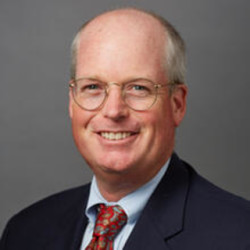Medicine is easy. Everything else is hard. As a clinician educator and PCP for the past 20 years, I am struck by the challenging aspects of medicine that are not strictly medical, but make all the difference to the lives of our patients: how hard it is to discharge a patient to a nursing home over the weekend; how difficult it is for a patient with Medicaid to see a subspecialist; how to coordinate chemotherapy for an undocumented immigrant; how to clean up substandard housing to prevent a child’s asthma attack; how challenging it is to address the innumerable complex issues so many of our patients face. What if the patient cannot get up the stairs when they get home? Which brand of glucometer does insurance cover? My colleague was caring for a patient who was in the hospital for weeks. The patient was too well to be discharged to a nursing home, but had no other place to go. My colleague quipped, “We have medicalized poverty.”
Medicine is easy, relative to how hard everything else is. This is not a new revelation for any who practice medicine. The physiology of sodium regulation is well-described. The pharmacology of a beta-blocker makes intuitive sense. The pathology of a retrovirus is increasingly well-understood. Our knowledge is great. Our technology is great. But this increase in technology has resulted in an increasingly complex, difficult system for our patients. In America, patients over 65 years old will see 28.4 individual doctors over their lifetime. In 2019, 35% of Medicare beneficiaries saw five or more physicians. With increased specialization comes more sophisticated tests, advanced procedures, and increased complexity to coordinate it all. For a patient, this can be a full-time job. What is more, this increased technology and increased complexity has not resulted in improved health outcomes.
Most of what makes “everything hard” are systemic issues. On the inpatient side, 65% of patients will have a delay to their discharge. 77% of these hold-ups are due to complex psycho-social issues. The dizzying array of insurance issues, co-pays, spend-downs, Title XIX applications, and disability appeals have wrought a whole new specialty of discharge planners. The logistics of navigating clinician visits, mammograms, colonoscopies, labs, and follow-ups are increasingly difficult — especially for our most vulnerable patients. The very existence of patient navigators speak to this, and there are not enough of them. In my largely Medicaid practice, patients will often say, “They didn’t call me,” after placing a consult. What went wrong? Did I place the consult incorrectly? Did the office not receive the consult through the EHR? Did the consultant’s office call and the patient did not answer? What happened? My own root cause analysis is that things get messed up in a million different ways.
There are individual patient factors that make “everything hard.” The health literacy of our patients is at or below eighth grade. Most Patient Education Materials and After Visit Summaries are between the ninth and tenth grade reading level. Up to 50% of patients are nonadherent with their medications due to a host of complex factors: insurance status, medical complexity, and social determinants of health. Communicating multi-step, complicated medical plans is extremely challenging during a rushed patient visit or a complicated inpatient admission.
In addition to poor health literacy, many harbor active distrust of the medical system. Pre-COVID-19 vaccine hesitancy has accounted for spikes of measles and meningococcus across the country. In the COVID-19 era, there remains much suspicion toward the COVID-19 vaccine. In a large survey, 15% were “not likely” and 7% were “definitely not” going to get the COVID-19 vaccine. Some of this is political. 29% of Republicans describe themselves as vaccine hesitant. Some of this is racial and cultural. 34% of African-Americans and 29% of Hispanics self-identify as vaccine hesitant.
There are physician factors that make everything hard. Physician burnout hovers around 50%, which is associated with a variety of challenges: increased mental health problems, errors, and job turnover. Satisfaction with EHRs is low. While physicians would not want to revert back to paper charts, PCPs spend 44% of their time in the EHR and 24% answering patient inbox messages. Task demands in the EHR drive low-quality documentation, increased tasks, and poor doctor-patient interactions. The amount of physician tasks is associated with increased burnout. This is hard. This creates an ambivalent relationship with patient care and the system of medicine. A national survey of 3,400 physicians from diverse specialties revealed that 74% of physicians would not recommend their profession to their children.
This is why the ACGME has six different areas of competency. Patient care and medical knowledge are only two. The other domains point to the complexity of what medicine has become: interpersonal communication, practice-based learning and improvement, professionalism, and system-based practice. Because medicine is so much more than medical knowledge, it is all hard. When we recognize the expanded scope, the expanded complexity of medicine, we realize we are more than technical experts. We need expanded skills to thrive in this profession.
What is the solution?
Patients need help. Every patient should have ready access to a patient navigator or health coach — especially those who are most vulnerable. This includes patients with the highest Health Care Complexity codes or those recently discharged after prolonged hospitalizations. The gap between hospitalization and the outpatient setting creates inefficiencies and errors. Follow-up specialty visits, ancillary studies, and visiting nurses all contribute to a dizzying array of complexity. The system needs help. EHRs are powerful tools, but presently are information repositories for labs, studies, notes, and orders. Leveraging this data should be a regular, ongoing, personalized exercise for front-line clinicians. If I can order an airplane ticket on the internet, I should be able to query which of my patients need a mammogram or a colonoscopy.
These changes will benefit patients, but physicians need help too. Studies show that increased autonomy to practice medicine, in a well-resourced, supportive environment is associated with increased job satisfaction. Increased efficiency often leads to more patient-care responsibilities and more work for physicians. Efforts need to be made to improve the work climate. Not unlike coal miners and factory workers, physicians have a high degree of morbidity with burnout, depression, and other mental health issues. Some interventions have helped – increased job flexibility and reduced work-load strategies – but long-term data is lacking. The workplace environment needs to be optimized for patient safety, efficiency, and well-being. Medicine has always been in flux. We respond to new societal pressures, incorporate new technology, and respond to the latest diseases. We care for people at their most vulnerable. Our mission is noble, but I fear we have created a system that is so encumbered by itself, so labyrinthine, that we cause harm to those very people we seek to heal.
Do you agree medicine is easy and it's everything else that makes health care difficult? Share why or why not in the comments.
Ben Doolittle is the Program Director of the Combined Internal Medicine-Pediatrics Residency Program. He is also the Medical Director of the Faculty-Resident Continuity Clinic. His practice focuses on addiction, Hepatitis C, HIV, and primary care. His research interests explore the intersection of medicine and spirituality, wellness and burnout. Ben is also an ordained minister, holding a MDIV from Yale Divinity School, and serves a local urban congregation.
Illustration by Jennifer Bogartz







